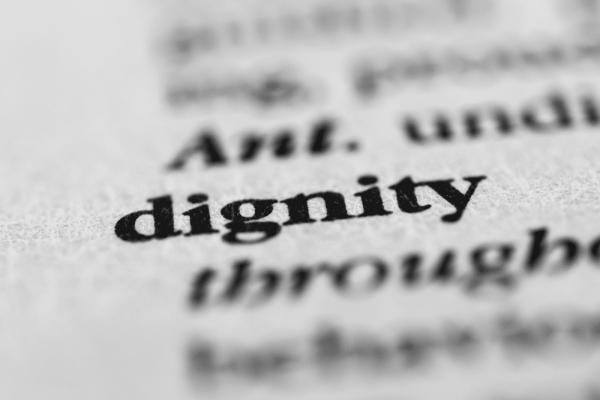Dignity, derived from the Latin word ‘dignitas’ meaning worthiness, is the inherent right of every individual to fair and respectful treatment. It is a pivotal concept in modern human rights, shaping how we interact with others and demand to be treated ourselves.
Explore the depth of dignity through our programs:
- Guided Meditation: Reflect on the meaning of dignity and discover ways to incorporate it into your relationships.
- Self-Development Programme: Take practical steps to treat others with respect and effectively address those who fail to honour your dignity.
Identifying Dignity Violations
Dignity violations manifest in various ways, sometimes unintentional and at times deliberate. It is crucial to address these issues and educate those causing harm to individuals and society at large.
Humiliation, seemingly harmless, can profoundly affect an individual’s confidence and self-worth.
Degradation over time destroys an individual’s self-belief, leading to alienation and isolation.
Objectification – Treating someone as less than human diminishes their self-worth, a common yet damaging occurrence.
Similar to objectification, dehumanisation damages self-image and challenges the very concept of humane treatment.
The Imperative of Treating Others with Dignity
In our daily actions and life ethos, maintaining mutual respect and dignity for everyone is imperative. Dignity forms the foundation of equality and benefits for all, embedded in both legal frameworks and human rights declarations.
Failing to treat others with dignity sets a precedent supporting inequality. Even seemingly insignificant actions can have far-reaching consequences. Acting with grace for others is fundamental to fostering a society built on good treatment and respect. Everyone desires and deserves dignity; thus, treating others with dignity should be a fundamental principle.

